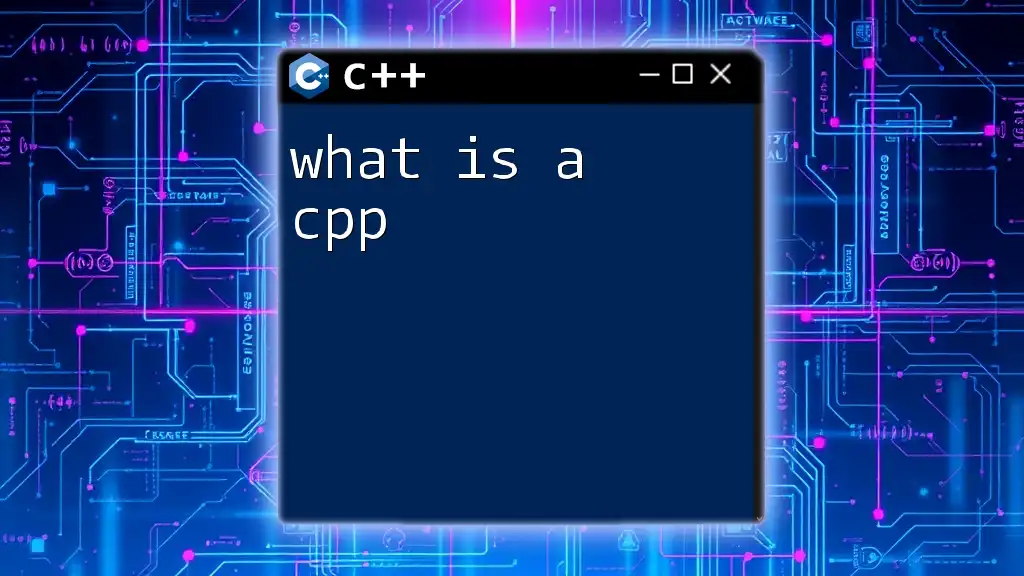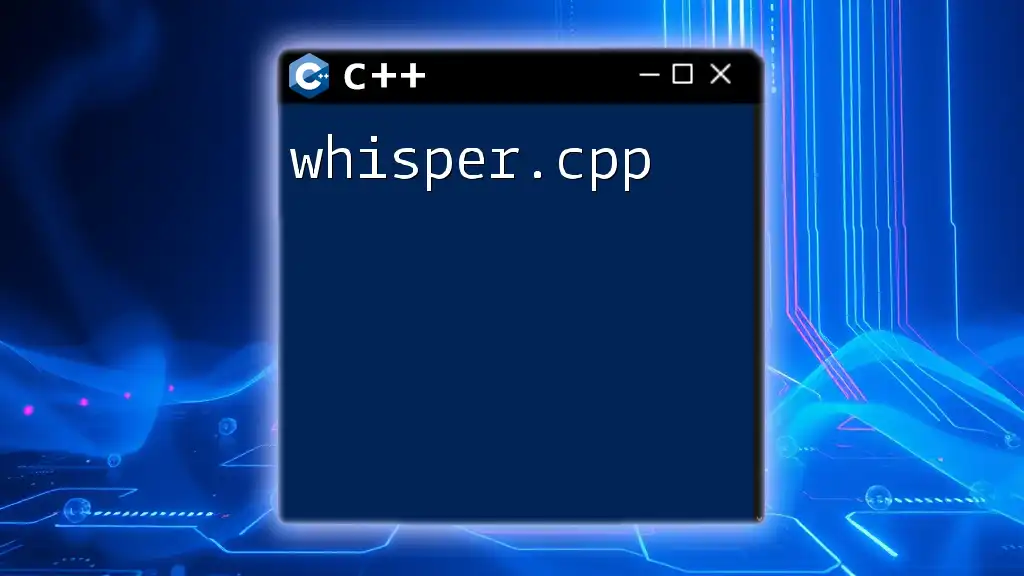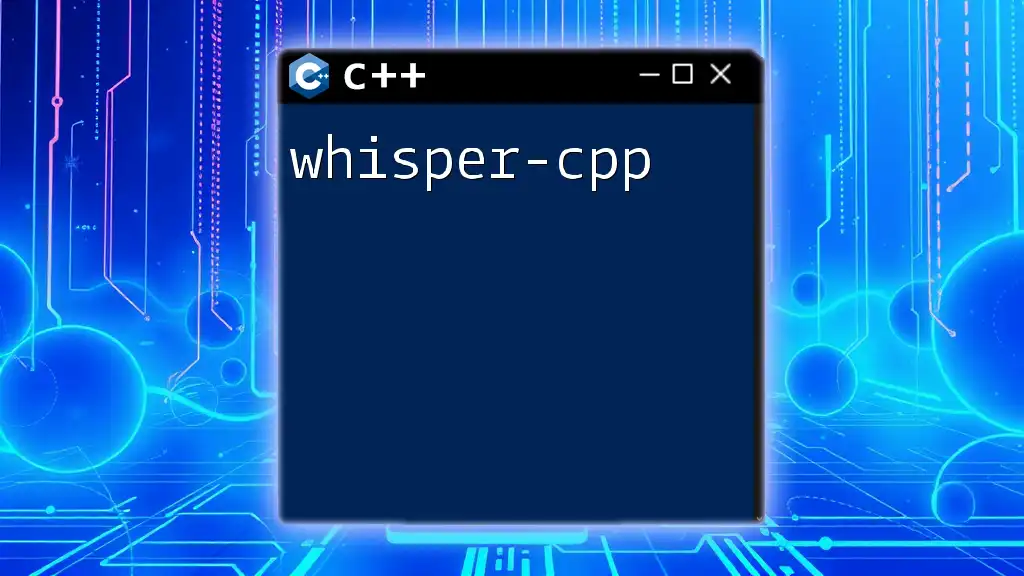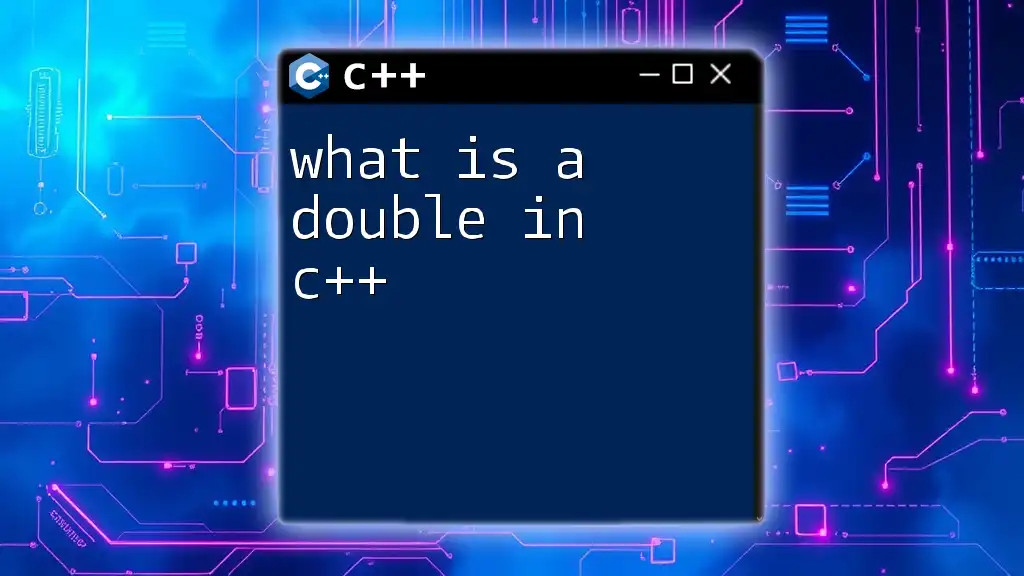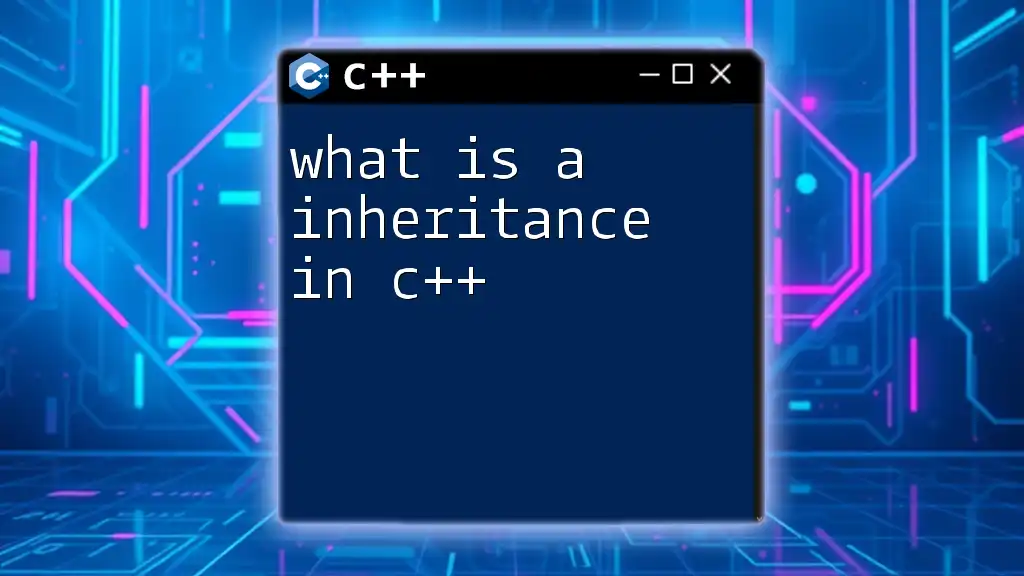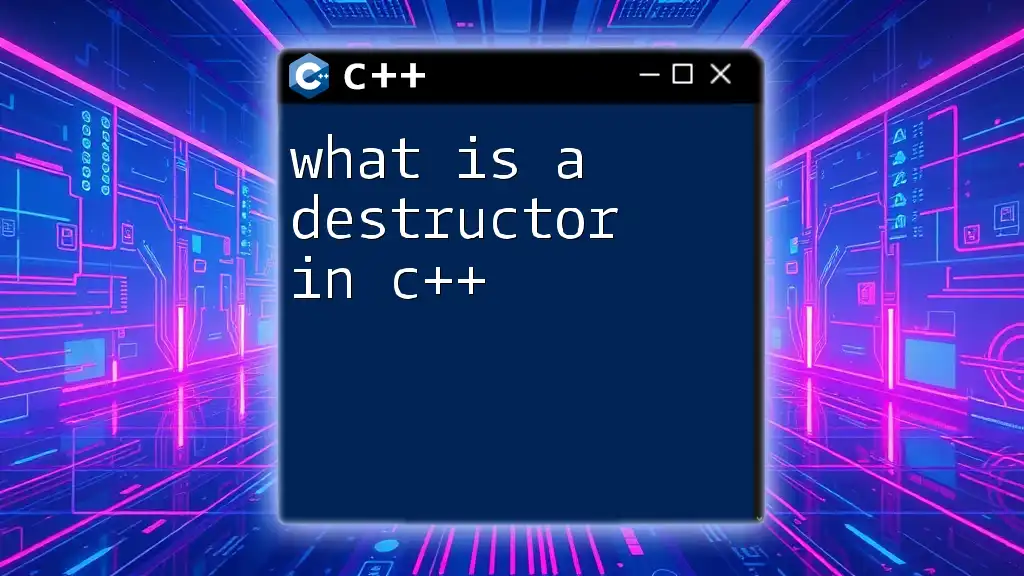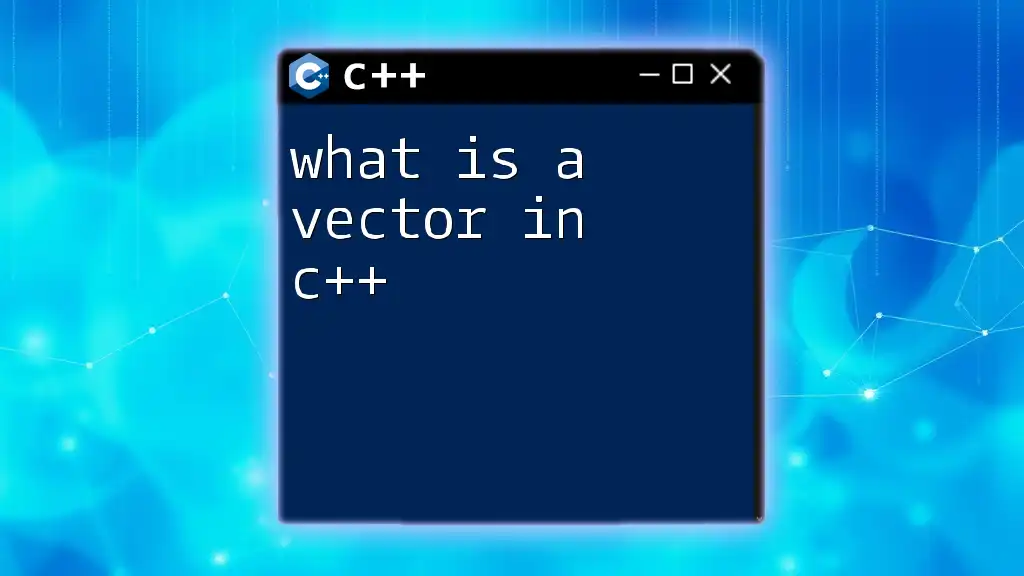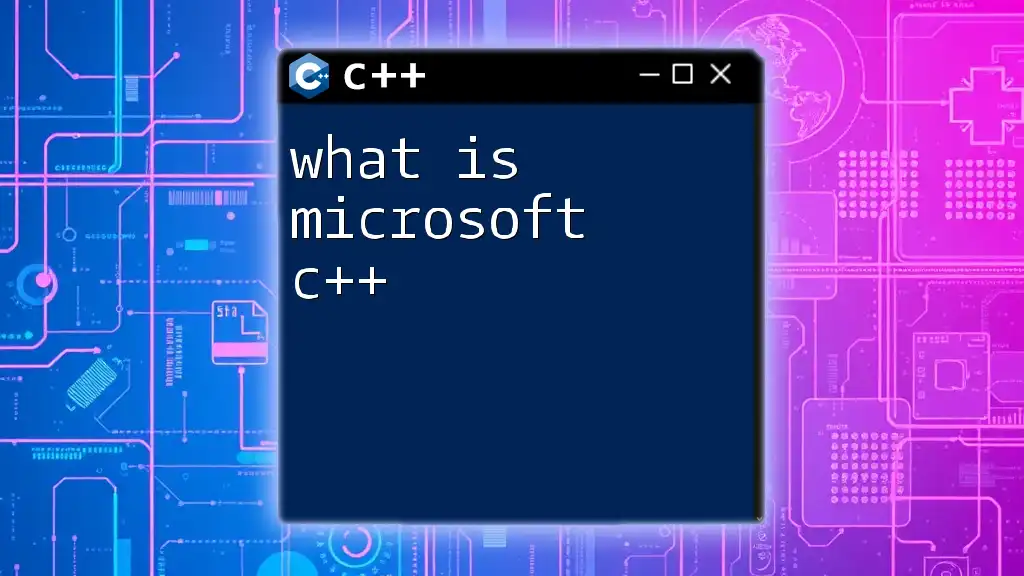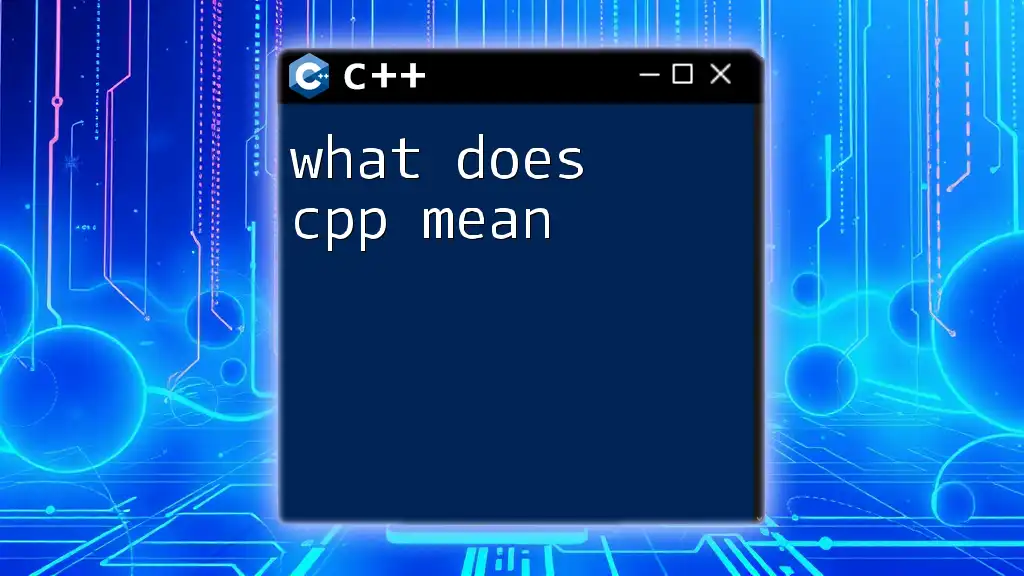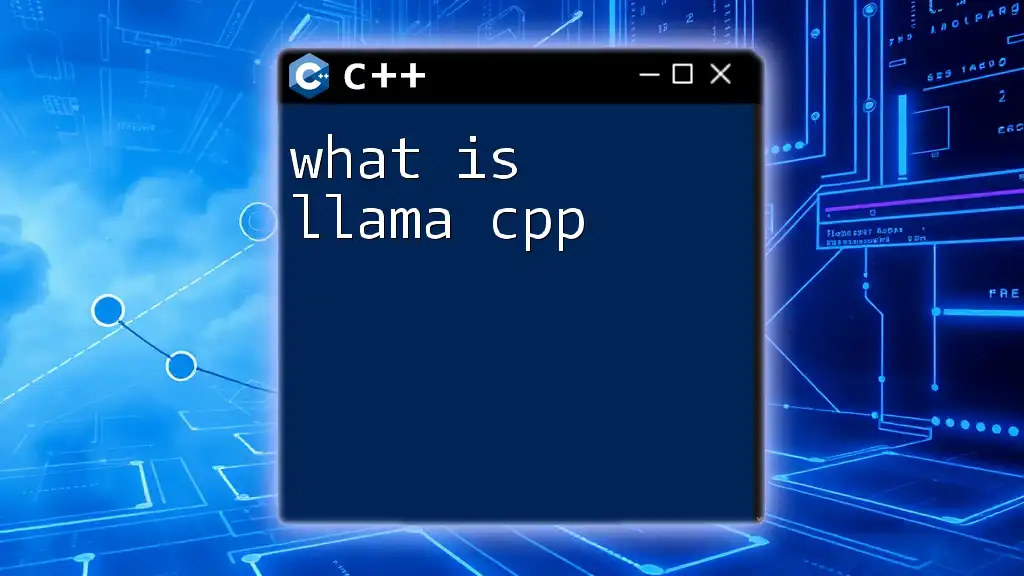C++ (pronounced "C plus plus") is a powerful general-purpose programming language that supports object-oriented, procedural, and generic programming, making it ideal for software development in various fields.
Here's a simple example of a C++ program that outputs "Hello, World!" to the console:
#include <iostream>
int main() {
std::cout << "Hello, World!" << std::endl;
return 0;
}
Understanding CPP
Definition of CPP
CPP is an abbreviation commonly used to refer to C++, which is a general-purpose programming language developed as an extension of the C programming language. It is designed to allow for both low-level and high-level programming, making it versatile for various applications. C++ incorporates features from its predecessor while introducing important concepts like object-oriented programming (OOP).
History of CPP
The history of CPP is rooted in the evolution of the C programming language, which was developed in the early 1970s. C laid the foundation for many programming languages that followed. In the late 1970s, Bjarne Stroustrup began working on C++ at Bell Labs. His aim was to add features of abstraction and object-oriented programming to C. The first version, known as C with Classes, was released in 1980 and evolved into C++ in 1983. C++ has undergone several updates, with the most notable standards being C++98, C++03, C++11, C++14, C++17, and the latest, C++20, which further enhances its capabilities and usability.
Features of CPP
C++ boasts several key characteristics that set it apart from many other programming languages:
-
Object-Oriented Programming: C++ supports OOP principles such as encapsulation, inheritance, and polymorphism, which help manage complex software development by promoting organized and modular code.
-
Strong Typing and Memory Management: C++ enables developers to work with memory directly via pointers and provides control over resource management, which can result in more efficient use of system resources.
-
Standard Template Library (STL): C++ includes the STL, a powerful set of C++ template classes for data structures and algorithms, which facilitates efficient programming.
Applications of CPP
C++ is highly utilized across various industries and applications, showcasing its flexibility and efficiency:
-
Gaming: Many gaming engines, such as Unreal Engine, are built using C++, allowing developers to create high-performance real-time graphics and physics simulations.
-
Finance: C++ is frequently used in trading systems where performance and speed are critical. Its ability to handle large datasets quickly enables effective analysis and strategy execution.
-
Systems Programming: Operating systems and systems-level applications often leverage C++ for its ability to manipulate hardware and memory efficiently.
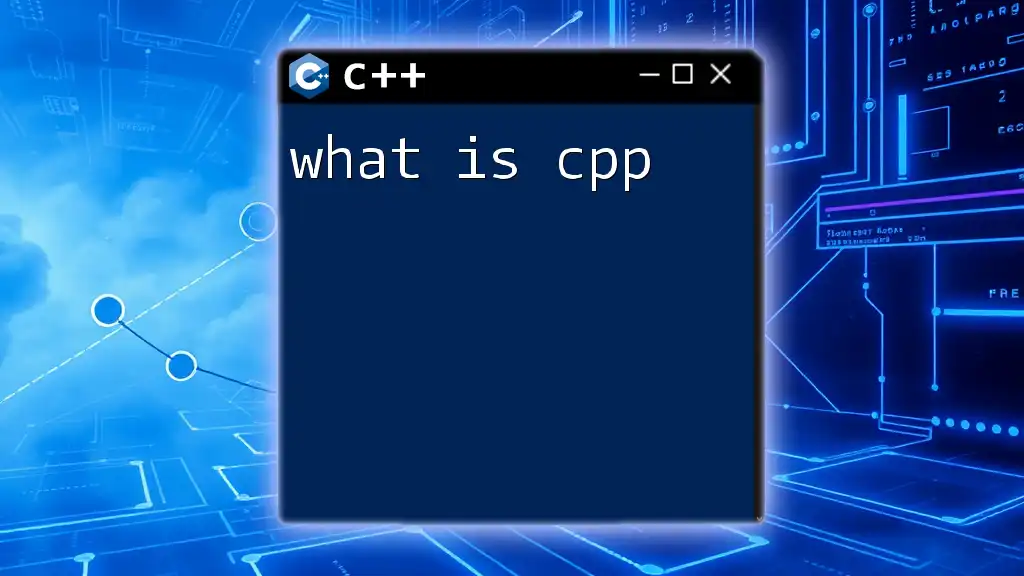
Syntax and Structure of CPP
Basic Syntax
Understanding C++ syntax is integral for writing effective programs. The structure of C++ code generally includes:
-
Preprocessor Directives: These commands start with `#` and are processed before compilation. For instance, `#include` includes standard libraries.
-
Main Function: The entry point of a C++ program is typically `int main() { ... }`.
-
Statements and Expressions: C++ code consists of statements that perform actions and expressions that compute values.
Here is an example of a simple C++ program, which showcases a complete program structure:
#include <iostream>
int main() {
std::cout << "Hello, World!" << std::endl;
return 0;
}
Common Commands in CPP
Introduction to CPP Commands
C++ commands are used to perform various operations, and mastering these is essential for effective programming.
Code Snippet Examples
- Input/Output Commands: The `std::cin` and `std::cout` commands are fundamental for input and output operations, respectively. For example, the following code snippet reads a number from the user and displays it:
#include <iostream>
int main() {
int number;
std::cout << "Enter a number: ";
std::cin >> number;
std::cout << "You entered: " << number << std::endl;
return 0;
}
- Control Flow Commands: Commands like `if`, `else`, and loops (for, while) control the flow of the program. Here’s a snippet that utilizes an `if` statement to determine if a person is an adult based on their age:
#include <iostream>
int main() {
int age;
std::cout << "Enter your age: ";
std::cin >> age;
if (age >= 18) {
std::cout << "You are an adult." << std::endl;
} else {
std::cout << "You are a minor." << std::endl;
}
return 0;
}
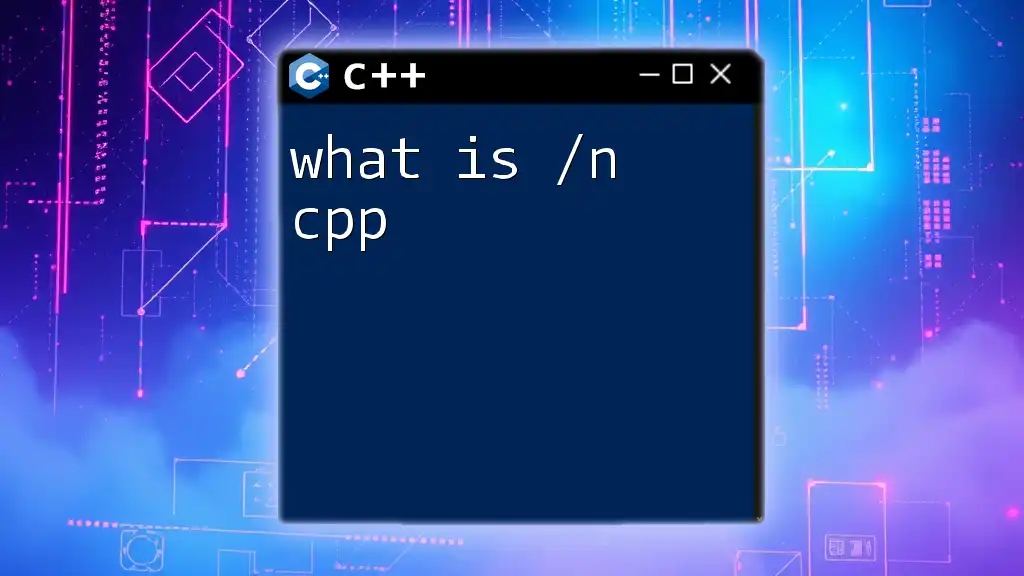
Why Learn CPP?
Advantages of Learning CPP
Learning C++ offers several benefits that can enhance your programming career significantly:
-
Career Opportunities: C++ developers are in high demand across various sectors, particularly in fields that require high-performance applications, such as finance, gaming, and system software development.
-
Performance and Efficiency: C++ is known for its performance, allowing developers to write optimally efficient code suitable for applications that require low-level operations.
Challenges in Learning CPP
However, it is essential to acknowledge the challenges associated with learning C++. The language has a steep learning curve due to its complex features, such as pointers, multiple inheritance, and manual memory management. New programmers may find these concepts daunting at first, but mastering them will yield long-term advantages in software development.
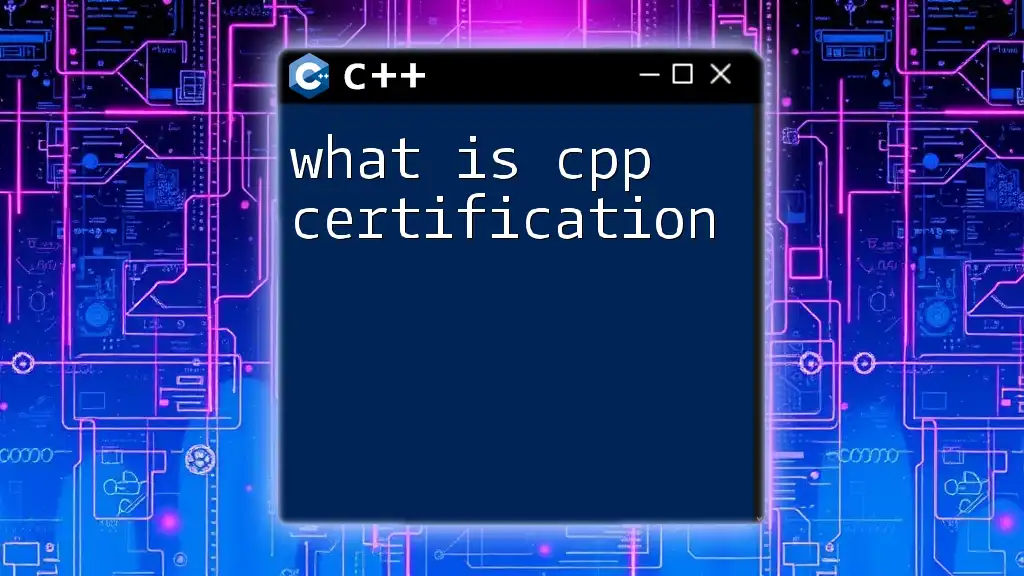
Tips for Mastering CPP
Resources for Learning CPP
To gain proficiency in C++, learners can access various resources, including:
- Books: “C++ Primer” by Lippman, Lajoie, and Moo is an excellent starting point.
- Online Courses: Platforms like Coursera and Udemy offer comprehensive courses tailored for beginners and advanced programmers alike.
- Tutorials: Websites such as Codecademy and freeCodeCamp provide hands-on learning experiences.
Practice and Real-World Applications
The best way to solidify your understanding of C++ is through practical application. Building small projects or contributing to open-source ones can provide valuable experience. Consider starting with simple applications like calculators or text-based games, and gradually tackle more complex projects as you become comfortable.
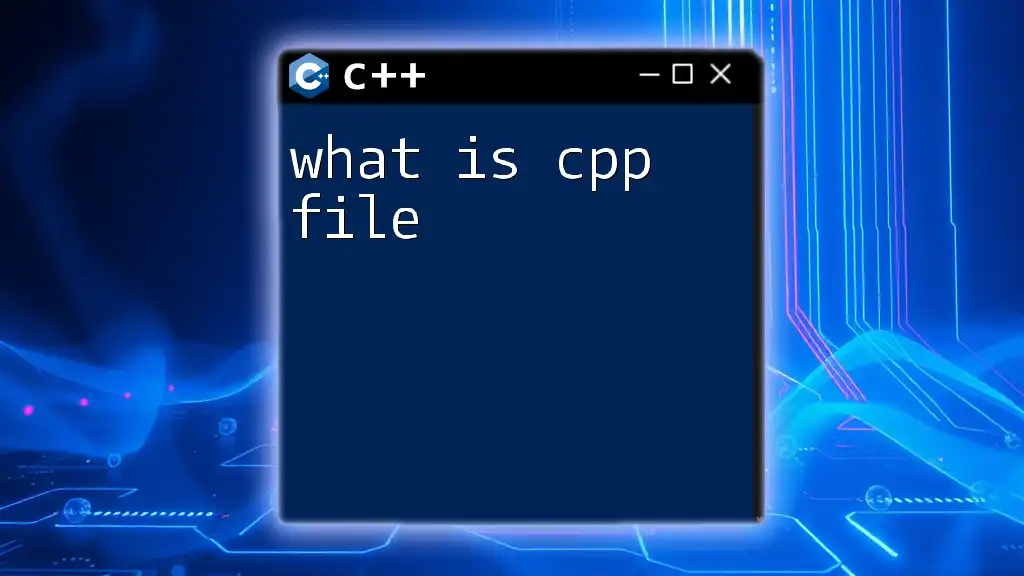
Conclusion
C++ continues to be relevant in the evolving landscape of programming languages. With its robust capabilities and versatility, it stands vital in various fields, including emerging technologies like artificial intelligence and the Internet of Things. By embarking on a journey to learn C++, you will not only enhance your programming skills but also position yourself favorably in the job market. Remember, persistence is key; embrace the challenges and explore the vast possibilities that C++ offers.
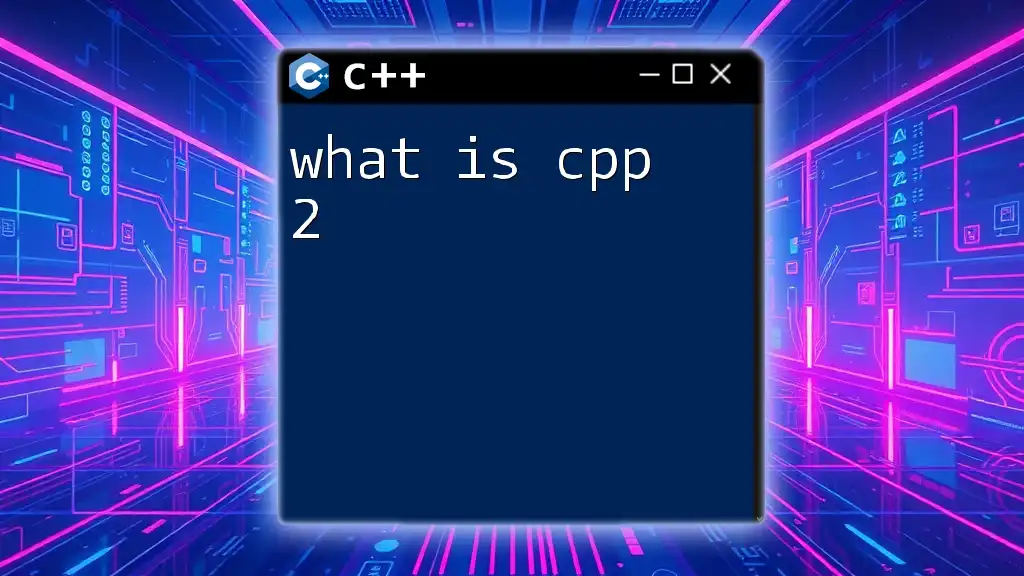
FAQ Section
Common Questions About CPP
-
What is the difference between C and CPP? C is a procedural programming language, while C++ supports OOP principles and provides more advanced programming features, making it more suited for complex software development.
-
How does CPP compare to other programming languages? C++ offers a unique blend of high performance, flexibility, and control over system resources, which positions it differently from languages that prioritize simplicity or developer productivity, like Python or JavaScript.
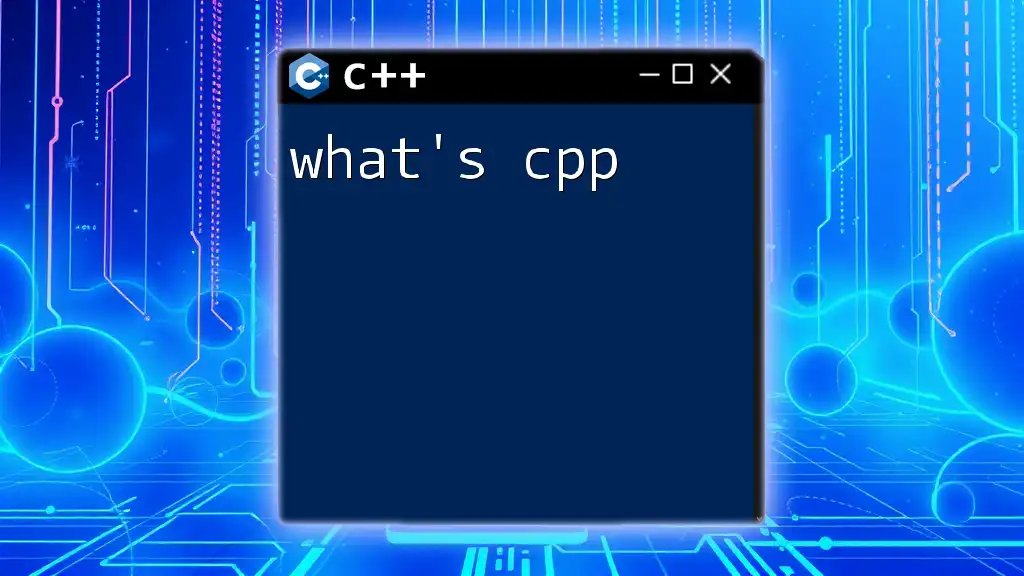
References
To explore more about C++ and improve your understanding, consider the following high-quality resources:
- "C++ Primer" by Stanley B. Lippman, Josée Lajoie, and Barbara E. Moo
- "Effective C++" by Scott Meyers
- Online programming platforms, such as Codecademy and freeCodeCamp.
With this foundational knowledge, you are now better equipped to delve into the world of C++ programming!

